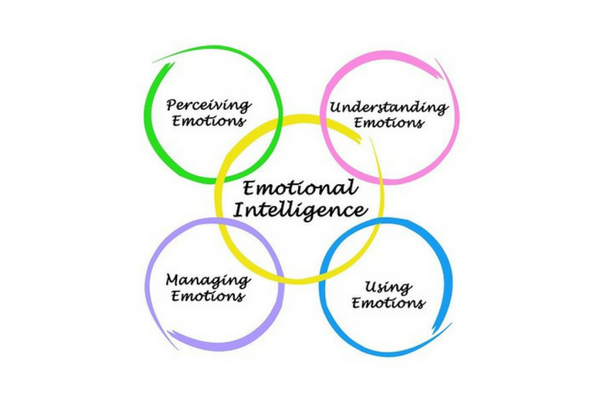Having created customer service training solutions for call centres within some of the UK and Europe’s largest companies, we’ve gained an understanding of the impact of emotional intelligence (EQ) in results. And abilities in this area are much more trainable than many people think…

While every query and issue is of course unique, we’ve long been aware that there are a few key factors that are crucial to a successful customer call. These are:
- Quick resolution to the query
- Good personal interaction
- Treating the customer with respect
- Timely access to the right information
These factors, highlighted by research such as this from Talkdesk, are largely within the control of the call centre agent, and while Timely Access to the Right Information is largely a question of good onboarding, product / service knowledge, and systems training (as well as a fast and efficient system). The other 3 above are softer skills, where emotional intelligence in customer service is essential to a positive interaction.
Improving Emotional Intelligence
Many still think that any attribute with the word ‘Intelligence’ attached to it is fixed – you are somewhere on a spectrum and either you’re good or you’re not. However, every attribute that involves a skill can certainly be both learned and improved, whatever your starting point.
Intelligence is, broadly speaking, one’s ability to acquire and apply knowledge and skills. In the context of a call centre environment, emotional intelligence will manifest itself in the ability to demonstrate an understanding of a customer’s issue and with their situation.
It was fascinating then, to see this PDF from BeyondMoral in the US, which breaks Emotional Intelligence down into 54 competencies. Some of these we’d suggest are really different terminology for the same competency (or at least very similar) so perhaps the list could be shorter than 54. We’ve picked out 5 that we feel deserve particular attention when implementing call centre training to improve customer satisfaction:
- Authenticity & Compassion
You’ll know that you need to start with recruiting the right staff (those who genuinely want to help people), but demonstrating a genuine desire to help is a skill that can be improved. Careful listening and tone of voice if responding to a customer complaint for example, is an area where peer or manager feedback can assist the call centre agent.
- Nonverbal Communication
How can there be nonverbal communication on a phone call? This is where Patience also comes in. Yes, there are call targets to hit and yes, the caller wants Quick Resolution to the Query – that’s their #1 priority. But there’s a balance. Letting the customer get their point across without being or feeling rushed, demonstrating some thought before responding – these are pacing skills that can be practised, perhaps with practice calls and peer-to-peer feedback.
- Listening Generously
Taking listening beyond simply not interrupting, demonstrating that you want to listen to the caller is a skill that can be practised and enhanced. This can be done through asking questions – both closed and open-ended – to gain and listen to more information. This can help to demonstrate interest in the client’s situation.
- Self-Confidence
Quantity of practice can play a big part here. The more exposure he or she has to similar situations, in a safe environment, the more confident a call handler will become. Giving staff access to practice time, with regular feedback, will help them to feel more confident in dealing with future situations.
- Creativity & Adaptability
These two competencies go together because they both require a call centre agent to create a new map for resolving an issue when there isn’t an obvious one in place. Practising various scenarios will help a call centre agent gain experience that will help, but training could also include signposting subject matter experts for specific issues and gaining experience of finding answers online or on a company intranet.
Taking written or on-screen notes will also help to keep all key elements of the call visible and front of mind. Having key points to hand could help the call centre agent to join the dots and create a new path to the right result for the customer.
As we work to create scenario-based training for call centres at some of the largest organisations in the UK and Europe, we’ve seen the powerful effects that well-planned, peer-to-peer learning can have on improving soft skills like these above, in addition to product / service knowledge and technical competencies.

















